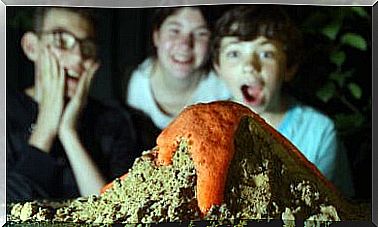Selective Eating Disorder In Young Children

It is common for children to have certain eating disorders. These are mainly preferences for certain foods and a reluctance to eat others. But in some cases, the foods that the child does not want to eat become so extensive that the child limits his intake to a very small group of foods. When this happens, it is known as a selective eating disorder.
The condition has not been diagnosed as a disorder until very recently. However, in the 2013 revision of the Diagnostic and Statistical Manual of Mental Disorders, published by the American Psychiatric Association, it was recognized as a disorder with well-defined characteristics. We now know that the tendency to avoid large food groups goes beyond a temporary whim or childhood problem.
Selective eating disorder
Selective eating disorder is when a person has a limited and not very varied diet, and when the person refuses to try new foods. This refusal is based on the sensory properties of the food (structure, color and shape). This can result in serious nutritional consequences.

When children suffer from this disorder, it is common for them to experience weight loss or not gain enough weight as they grow. At the same time, they get a serious nutritional deficiency because large food groups such as vegetables, fish or legumes often disappear completely.
The person is also affected on a psychosocial level because he or she tends to avoid situations where the syndrome can be detected or constitute a problem. It is a condition that affects the well-being of both the suffering child and his or her primary caregiver. The child’s constant refusal to eat can be quite overwhelming and disturbing.
More than just a whim
A selective eating disorder is never a reflection of a childish whim or a “spoiled” child. It is a syndrome that can be caused by many factors and has deeper consequences.
Although experts do not yet know all the causes or factors behind them, they have come to the following conclusions:
- It is common for these children to have a troubled personality, with obsessions or a tendency to social phobia. They also adapt poorly to changes and news. The disorder can develop from their rigid and inflexible personality.
- Researchers have observed problems in the relationship between the child and the primary caregiver. Children who cannot express themselves orally use screams or tantrums to communicate their dissatisfaction. This behavior can cause great stress, discomfort and nervousness in the caregiver.
- This in turn prevents a healthy bond of love and trust between them. To avoid these situations, the caregiver usually chooses to offer the child the least problematic foods, and this simply exacerbates the child’s eating disorder.
- Several studies have found that a significant percentage of children and adolescents with selective eating disorders are afraid of suffocation or vomiting, as well as have certain food allergies.

How can selective eating disorder be prevented and treated?
- When the baby starts eating solid food, the baby led weaning (BLW method) can help it explore the diversity of the food and experiment with it at its own pace. In this way, the child experiences the meals as a natural and fun process and not as a compulsion.
- We must be consistent and patient when we offer different foods and must not lose heart or give in to the child’s rejection.
- We are our children’s role models. It is important for them to see that all family members eat what is on the table, without exception. Eating together and having a nice table conversation is also beneficial.
- You should try to be innovative in the kitchen. This includes using different textures, textures, flavors and preparation methods. Doing something different with the food stimulates children’s curiosity and encourages them to taste and try new flavors.
- Once the disorder has been diagnosed, it is important to seek professional help. In some cases, nutritional deficiencies may require a short-term hospital stay.
In any case, it is necessary to intervene in an interdisciplinary way, with psychologists, doctors and nutritionists. They will need to work with the child’s stubborn personality and on the connection with the caregiver. And above all, you must continue to introduce new foods into your baby’s diet.









